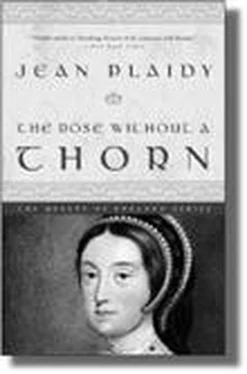Jean Plaidy - Mary, Queen of France - The Story of the Youngest Sister of Henry VIII
Здесь есть возможность читать онлайн «Jean Plaidy - Mary, Queen of France - The Story of the Youngest Sister of Henry VIII» весь текст электронной книги совершенно бесплатно (целиком полную версию без сокращений). В некоторых случаях можно слушать аудио, скачать через торрент в формате fb2 и присутствует краткое содержание. Жанр: Старинная литература, на русском языке. Описание произведения, (предисловие) а так же отзывы посетителей доступны на портале библиотеки ЛибКат.
- Название:Mary, Queen of France: The Story of the Youngest Sister of Henry VIII
- Автор:
- Жанр:
- Год:неизвестен
- ISBN:нет данных
- Рейтинг книги:4 / 5. Голосов: 1
-
Избранное:Добавить в избранное
- Отзывы:
-
Ваша оценка:
- 80
- 1
- 2
- 3
- 4
- 5
Mary, Queen of France: The Story of the Youngest Sister of Henry VIII: краткое содержание, описание и аннотация
Предлагаем к чтению аннотацию, описание, краткое содержание или предисловие (зависит от того, что написал сам автор книги «Mary, Queen of France: The Story of the Youngest Sister of Henry VIII»). Если вы не нашли необходимую информацию о книге — напишите в комментариях, мы постараемся отыскать её.
Mary, Queen of France: The Story of the Youngest Sister of Henry VIII — читать онлайн бесплатно полную книгу (весь текст) целиком
Ниже представлен текст книги, разбитый по страницам. Система сохранения места последней прочитанной страницы, позволяет с удобством читать онлайн бесплатно книгу «Mary, Queen of France: The Story of the Youngest Sister of Henry VIII», без необходимости каждый раз заново искать на чём Вы остановились. Поставьте закладку, и сможете в любой момент перейти на страницу, на которой закончили чтение.
Интервал:
Закладка:
When she was alone with her women she would do her best to bring his name into the conversation, for the next best thing to being with him was to talk of him.
“Charles Brandon,” said one of her women, “why, there is a man to avoid.”
“Why so?” demanded Mary.
“Because, my lady, he is one of the biggest rakes at Court.”
“Doubtless he is much pursued.”
“That is likely so. What a handsome fellow! And what a roving eye! I’ve heard it said there are secrets he would rather not have brought to Court.”
“There will always be slander against one so attractive.”
The woman raised her eyebrows and looked knowledgeable. Mary understood such looks and knew that she must curb her tongue lest in a short time the rumor went through the Court that the Lady Mary, who was no longer a child, was over-interested in Charles Brandon.
When she next danced with Charles she said to him: “Is it true that you are a rake and a philanderer?”
He laughed, and she laughed with him because she was always so happy in his company that everything seemed a matter for laughter.
“My lady,” he replied, “I never intended to live the life of a monk; although, by some accounts, it would seem that monks are not all we believe them to be.”
“And if the tongue of slander can touch them,” said Mary, “how much readily will it busy itself over one so … so …”
He stopped in the dance; it was only for a few seconds but to Mary it seemed for a long time, because that was the moment of understanding. She had betrayed her feeling, not only to him but to herself. A great exultation took possession of her and it was immediately followed by a terrible frustration; for how could that for which she longed ever be hers?
She loved Charles Brandon. More than any other person in the world, she loved him and she could only be completely happy in his company; but across the water a boy with a heavy jaw and sloppy mouth, heir to great dominions, was waiting until the time when he should be old enough to send for her as his bride.
In the ballroom, with this knowledge bursting upon her, she understood the tragedy which befell so many royal princes and princesses, and knew that it was hers.
Margaret Beaufort, Countess of Richmond and Derby, was very tired, for the coronation celebrations, following so quickly on the funeral, had exhausted her, and from the moment she had looked upon the dead face of her son she had known that life had lost all zest for her.
Her beloved son was dead; what reason had she for living? The children? He had wished her to take care of them; but they would answer only to themselves. She had known that for a long time. Neither of them resembled their careful father, and would go their own way, no matter what advice was given them by their grandmother.
She had lived for sixty-six years, which was a goodly span; and it was because she had been only fourteen years old when she had borne her beloved son that she had been able to take such a prominent part in his counsels; there was no great difference in their ages, and Henry had always been old for his years.
Now she could say: “Lord, I am ready. Let thy servant depart in peace.” She could look back on a life of piety. The universities of Oxford and Cambridge would remember her generosity for as long as they were in existence; nor were they the only beneficiaries of her good works.
She took to her bed before the coronation festivities were over and when she died peacefully, bringing the celebrations to an end, John Fisher, Bishop of Rochester, declared: “All England for her death had cause for weeping”; and it was true that the news was received with sorrow throughout the land.
The old King and his mother dead! A new way of life was certainly opening out before the country.
Perhaps the new King was not quite so grief-stricken as he declared himself to be. Perhaps he felt the last of his bonds breaking. He was no longer in leading strings. Absolute freedom was his, and that was a state for which he had always longed.
And the young Princess? She wept for her grandmother, but the old lady was a figure of the past, and at this time of exultation and apprehension Mary could only look to the future, could only ask herself whether it was possible, if one were determined to have one’s will, to flout the whole Court, the whole world, to get it.
One could not deeply mourn the passing of a woman who had lived her life, when one’s own was opening out before one.
There was no room in Mary’s heart and mind for other thoughts or emotion.
She loved with all the force of a passionate nature. It was no use telling herself that she was not yet fourteen years of age. Her grandmother had borne a son at that age. She was a woman now, understanding a woman’s emotions; and because she had always had her way she did not believe she could fail to get it now.
Charles Brandon was the man she had chosen for her husband. She cared nothing for ceremonies which joined her to a boy whom she had never seen.
“I must marry Charles,” she told herself. And she added: “I will.”

The Rise of Charles
CHARLES BRANDON was well aware of the effect he was having on the Princess Mary. He was amused and flattered, for she was a charming creature and he—who prided himself on his knowledge in such matters—would have been ready to wager that not only would she in a very short time become one of the most beautiful young women at the Court, but also one of the most passionate.
It was a pleasant situation, therefore, to be the object of the child’s adoration.
Had she been anyone else he would have been impatient to exploit his advantage; but the King’s sister must be treated with caution; for the King’s sake, or perhaps more truthfully for his own.
He knew Henry well, as they had been together for years; there was a certain primness in Henry’s character which could make a man’s dalliance with his sister a dangerous occupation. Henry was as sensation-loving as his friends; he was not averse to a flirtation here and there; indeed he was just discovering the full delights of the flesh and, if Brandon was not mistaken, would gradually become a more and more eager participant in what they had to offer. But he had quickly discovered that, in dealing with the King, an element of caution must always be employed; and knowing Henry’s great regard for young Mary, it was obvious that he, Brandon, must enter with the utmost caution any situation involving her.
It was a pity. He was thinking of her constantly; and strangely enough he was becoming critical of his mistresses. They were not fresh and young enough. Naturally. How could they hope to compete with a virgin whom he knew to be but fourteen years old? He was as certain of the first fact as of the second. And there she was, as deeply enamored of him as any woman had ever been; and he must remain aloof, constantly reminding himself who she was.
A fascinating situation, yet one he must resist.
If she were not affianced to young Charles, would it be possible … ?
Oh no, he was allowing the King’s friendship toward him to put preposterous ideas into his head. He had been very fortunate; it was up to him to see that he remained so.
So during the weeks which followed that moment of revelation Charles Brandon often thought back over the past and saw how luck had brought him to his present position and that he must not run any risk of jeopardizing his good fortune.
Yet what harm was there in seeking the company of this charming girl? A touch of the hand, an eloquent look, could mean so much; and even a cynical adventurer could not but be moved by the love of a young girl.
Читать дальшеИнтервал:
Закладка:
Похожие книги на «Mary, Queen of France: The Story of the Youngest Sister of Henry VIII»
Представляем Вашему вниманию похожие книги на «Mary, Queen of France: The Story of the Youngest Sister of Henry VIII» списком для выбора. Мы отобрали схожую по названию и смыслу литературу в надежде предоставить читателям больше вариантов отыскать новые, интересные, ещё непрочитанные произведения.
Обсуждение, отзывы о книге «Mary, Queen of France: The Story of the Youngest Sister of Henry VIII» и просто собственные мнения читателей. Оставьте ваши комментарии, напишите, что Вы думаете о произведении, его смысле или главных героях. Укажите что конкретно понравилось, а что нет, и почему Вы так считаете.












